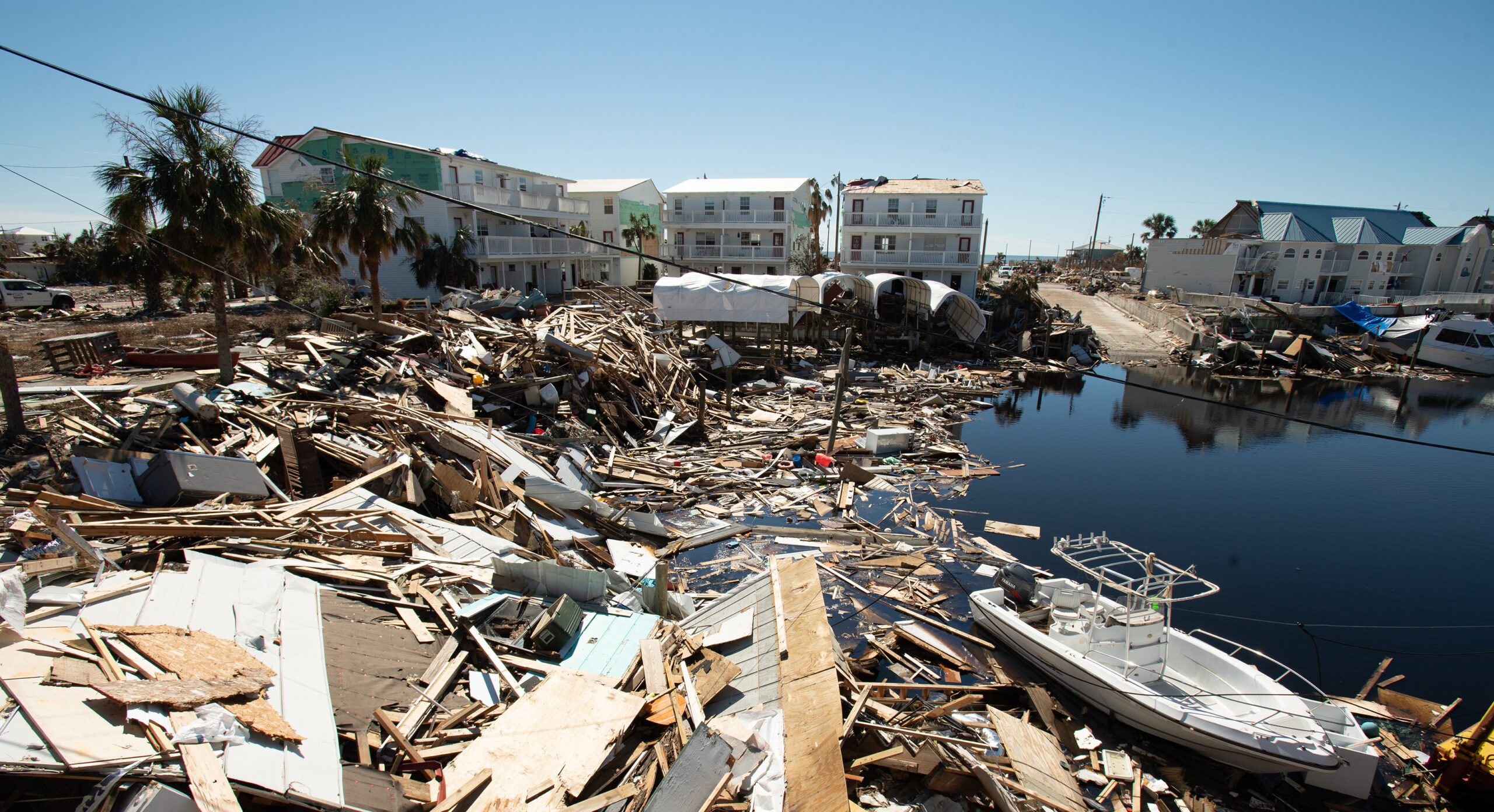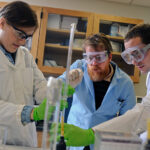Florida SBDC Network, Haas Center help small businesses recover from Hurricane Michael
When Hurricane Michael made landfall as a Category 4 storm in the Florida Panhandle on Oct. 10, 2018, it left communities like Panama City, Mexico Beach and Port St. Joe in ruins.

In the aftermath, two University of West Florida Division of Research and Strategic Innovation entities sprang into action to help in both the immediate recovery and to quantify the long-term effects.
Once the storm passed, the Florida SBDC Network worked with the U.S. Small Business Administration to establish Business Recovery Centers across the Panhandle for small businesses to receive on-site assistance.
Florida SBDC Network consultants worked alongside SBA business loan specialists Monday through Saturday to help businesses determine their eligibility for a Florida Small Business Emergency Bridge Loan, SBA Physical Loan or SBA Economic Injury Loan, and assist them in the application process.
State designated as Florida’s principal provider of small business assistance, the Florida SBDC Network has over 40 centers throughout the state.
“Small businesses across the Panhandle suffered devastating loss from Hurricane Michael,” said Michael W. Myhre, CEO of the Florida SBDC Network. “We want our small business owners to know how important they are to our state and that we are here to help them get back on their feet as quickly as possible.”
The Florida SBDC Network provides consulting, training and research to help small businesses grow and succeed. As a member of the state’s Emergency Support Function 18 for Business and Industry, the network plays a key role in helping small businesses prepare and recover from disasters.
Hurricane Michael’s devastation will have long-lasting effects on communities and the Haas Center — a leader in economic research and data in the Northwest Florida region and the rest of Florida — created an actively updating dashboard that tracks the economic impact of Hurricane Michael in Bay and Gulf counties.
“We felt that the Haas Center had a unique opportunity and perspective to help our community get a handle on the economic impact of Hurricane Michael,” said Amy Newburn, assistant director of the Haas Center. “Not only do we have experience with the serious consequences of major storms, but we also have spent the past 25 years studying our region and its economy.”
The dashboard tracks the overall economic impact, as well as statistics on jobs lost, Federal Emergency Management Agency assistance grants, timber industry losses and the number of insurance claims in the two counties.
“The Haas Center’s mission is to provide competitive intelligence and decision support for business, government, nonprofits and academic institutions,” Newburn said. “Ultimately, what we want to be able to do is apply our two decades plus of knowledge and methodological rigor to research questions that will aid institutions in making data-driven decisions.”



